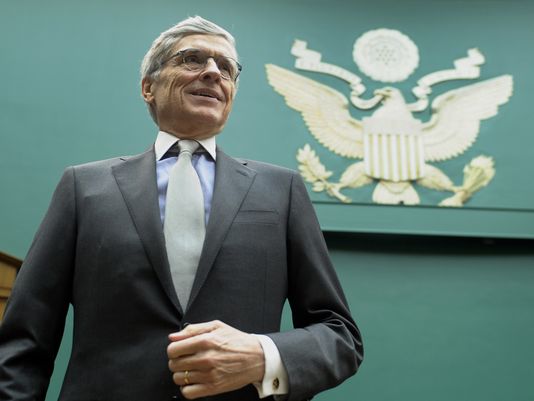Appeals court rules against FCC on net neutrality
A federal appeals court has ruled against the Federal Communications Commission on mandates that require broadband providers to treat all Internet traffic equally.
In an opinion handed down Tuesday[1], the United States Court of Appeals in D.C. ruled that while the FCC has authority to regulate how Web traffic is managed, it cannot impose rules on companies like Verizon based on how they're classified.
"Given that the Commission has chosen to classify broadband providers in a manner that exempts them from treatment as common carriers, the (1996) Communications Act expressly prohibits the Commission from nonetheless regulating them as such," reads an excerpt from the ruling.
In a statement, FCC Chairman Tom Wheeler says the agency is weighing an appeal.
"I am committed to maintaining our networks as engines for economic growth, test beds for innovative services and products, and channels for all forms of speech protected by the First Amendment," says Wheeler.
Supporters of Net Neutrality took some good away from the decision, noting that it established the FCC's power to create Internet rules. "In some respects, no one got what they wanted out of this decision, and confusion over the proper role of the FCC is greater than ever," said Public Knowledge senior vice president Harold Feld in a statement. The consumer interest group intervened on the FCC's side in the case.
"In the coming days, all parties (including Public Knowledge) will need to consider whether or not to appeal this decision," he said. "In the meantime, we look forward to working with the FCC under the existing authority the court recognized today."
In a statement released after the ruling[2], Verizon says nothing will change about how users access the Internet. "The court's decision will allow more room for innovation, and consumers will have more choices to determine for themselves how they access and experience the Internet."
References
- ^ http://www.cadc.uscourts.gov/internet/opinions.nsf/3AF8B4D938CDEEA685257C6000532062/$file/11-1355-1474943.pdf (www.cadc.uscourts.gov)
- ^ http://publicpolicy.verizon.com/blog/entry/verizon-reiterates-its-commitment-to-the-open-internet (publicpolicy.verizon.com)










